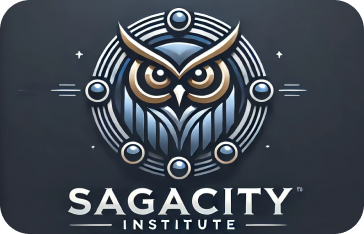Putting an Old Head on Young Shoulders

My Irish grandmother was very wise. After observing one of my many suboptimal decisions growing up, she would remark, “You can’t put an old head on young shoulders.”
Many of us eventually learn through trial and error. Experience, however, is an unforgiving teacher, and the lessons learned are often painful and costly. At the very least, those experiential lessons result in missed opportunities.
But can we short-circuit that learning curve and essentially “put an old head on young shoulders?”
We can do so by teaching students to become sagacious.
It is said that one percent of the people in the world make things happen, nine percent of people watch things happen, and 90 percent say, “What happened?”
How do you become a member of that one percent who makes things happen?’
You need sagacity. Dictionaries define sagacity as keen judgment and acute discernment, but how can you get a jump start on sagacity?
Future skills.
Future skills are not designed to prepare and assist bright students in getting into the college of their dreams or excelling in their collegiate studies, although they will certainly help. Future skills aim higher.
Educational institutions prepare students for the present by focusing on the past. This is not meant to marginalize the value of foundational skills or the dedicated work of classroom teachers, but that model prepares students to become part of the crew who watch things happen or aren’t even aware of the changes happening around them.
This only leads to missed opportunities and frustration.
Does that make sense if what students require are skills to thrive in a world changing faster than ever before?
What young people need is insight and training on how to succeed in the future.
Technology is changing everything, but it is not the silver bullet. As transformational and captivating as artificial intelligence, internet of things (IoT), blockchain, and other technologies are, they are only pieces of the puzzle.
What matters more is how future leaders will use these tools effectively, profitably, sustainably, and wisely.
Critical thinking, digital and data literacy, creativity, adaptability, and leadership are just a few of the 20 or more necessary future skills. This list will expand and change over time—as it should—but these skills are the bedrock of tomorrow’s leaders’ success.
All business problems come down to three questions. Where am I now? Where am I going? And how am I going to get there?
Future skills are foundational to succeeding in whatever path someone chooses, including many that do not yet exist.
That is the ticket for your sons and daughters to become a member of the one percent who will make things happen in the years ahead. Learning future skills is where their saga begins.
